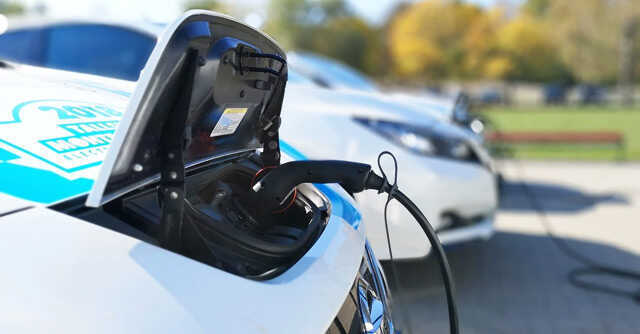
Low-quality batteries ill-suited to Indian conditions may toughen ride for Indian EVs


While the adoption of electric vehicles (EVs) is picking up in the country with almost one million units on the road, the peddling of low-quality batteries that are ill-suited to Indian conditions is likely derail the progress of the sector, according to industry experts and battery manufacturers.
Arun Vinayak, co-founder of Exponent Energy, a Bengaluru-based startup that makes battery management systems (BMS) and fast charging interfaces for EVs, points out that "a lot of mom-and-pop shops around the National Capital Region buy battery cells from third-party vendors, and cover them in blue shrink wraps to create battery packs". "These are cheap batteries that target the mainstream e-rickshaws – and come with very basic or no BMS,” he says.
The BMS of a battery is a hardware and software interface that controls power supply to a battery pack’s underlying cells, as well as the charging speed and voltage. It is this that controls the power cut-off point when charging batteries, which is crucial in preventing them from overcharging. This not only helps maintain the claimed longevity of a battery, but also prevents it from exploding.

However, if users purchase a battery that is not tested properly, the lack of a BMS when combined with a rudimentary thermal management system will not only pose a risk but also reduce the life of the battery, according to Vinayak. This poses a major problem, particularly considering how Indian road conditions differ from western nations that have cooler temperatures and compartively smoother roads. “Cells should be between 35 and 45 degrees Celsius, but in India, the ambient temperature itself is above 45 or 48 degrees. This raises the question of keeping the cells below the ambient temperatures, which batteries that are being imported from colder markets today do not come with,” he adds.
With higher ambient temperatures, the lack of a proper BMS and heat management systems make inexpensive battery packs a major safety hazard, while simultaneously reducing efficiency and the life of the battery. “For instance, if you have a faulty or basic BMS, your battery pack may think it is at 30% power and continue to charge, whereas in reality, the cells are already at 100% charge. This can create a big safety issue,” Vinayak explains.
Varun Goenka, chief executive of battery swapping network startup ChargeUp, agrees that Indian road conditions pose for EV batteries. To address the issue, ChargeUp has built its own technology platform wherein it leases batteries, fits them with connected chips, and collects on-ground data when these batteries are in operation in two and three-wheelers. “We run analytics on three years of on-ground EV battery data that we have collected, and select practices to minimise battery performance drops to better adapt them to Indian temperatures. We also charge batteries in an air-cooled environment at our swapping stations,” Goenka says.

However, Rajeev Singh, partner and automotive leader at Deloitte India, points out that India currently has no regulatory body to lay down on-road rules for battery specifications--not just for four-wheelers, but for mainstream e-rickshaws and scooters as well. “Reports from over the past few months stated that there are over 820 e-rickshaw makers in the country. Given that we do not have a body such as the Arai (Automotive Research Association of India) in the EV space, how does one regulate so many companies in terms of adapting safety standards?” he points out.
Further, while large automakers such as Tata Motors and Hero Motocorp have the capital to invest in advanced battery technologies, drivers of e-rickshaws that offer last mile connectivity in both urban and rural areas in India are likely to purchase untested, poor-quality batteries sold by third-party vendors.
To be sure, the Indian EV industry is working on addressing these concern areas. Varun Agni, co-founder and head of products and technology at electric scooter maker, Bounce, says while the company imports battery cells from other countries, they have invested in road tests to ensure that the batteries can withstand heat, rough usage patterns and extensive road vibrations. However, he adds that fast charging of EV batteries remains a roadblock in India for now.

Ola Electric chief executive of Bhavish Aggarwal has reiterated in his tweets and blog posts that the startup is “investing deeply behind core R&D to create indigenous advanced cell technologies”. Ola Electric has also applied for the Indian government’s production-linked incentive scheme to manufacture battery cells in the country, and on 21 March, announced a partnership with Israel-based fast charging company StoreDot. The latter claims to offer 100% battery power in five minutes in India, which Ola Electric has said will be brought to the market, “soon.”
Singh, on his part, insists that "India needs its own testing standards since most cells and batteries are made in colder countries. As we pack batteries more densely, we need to ensure that adequate BMS units are put in them. Regulatory recommendations can help mandate that.”
